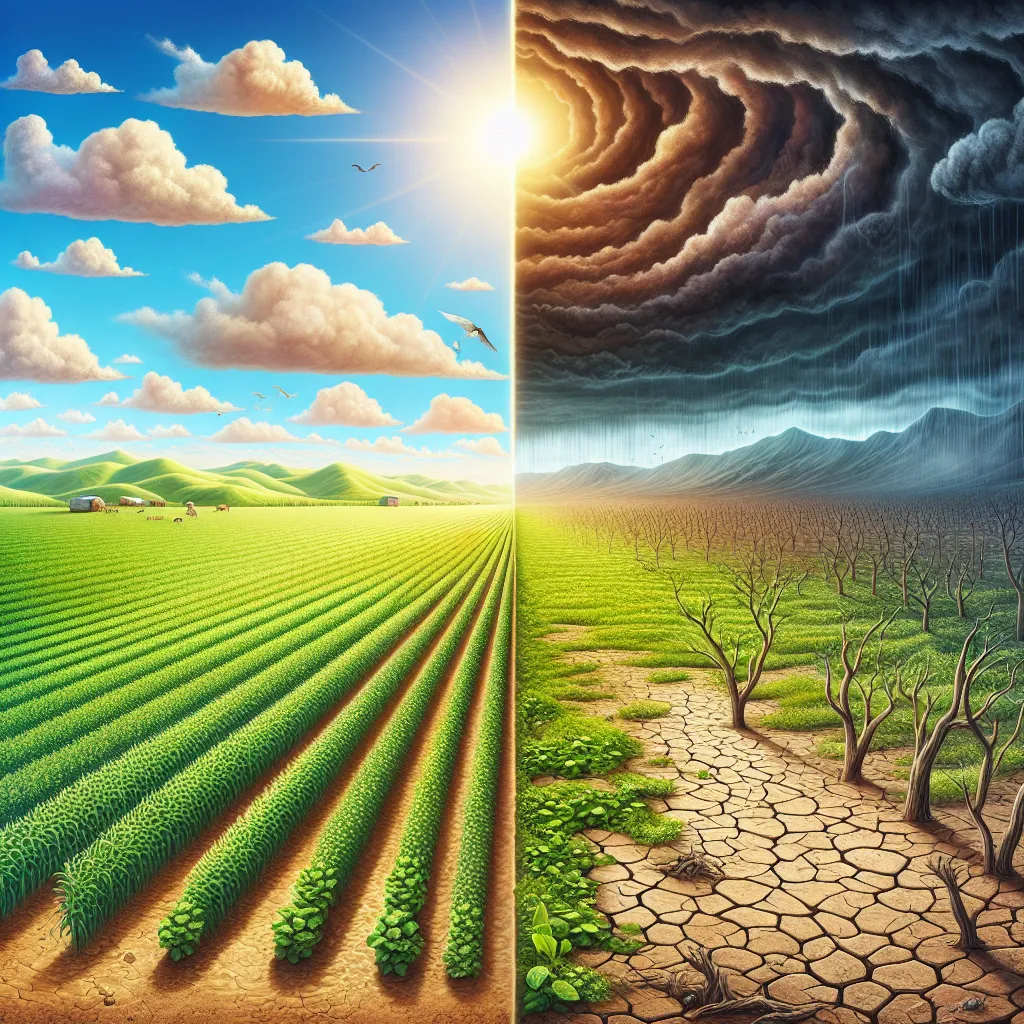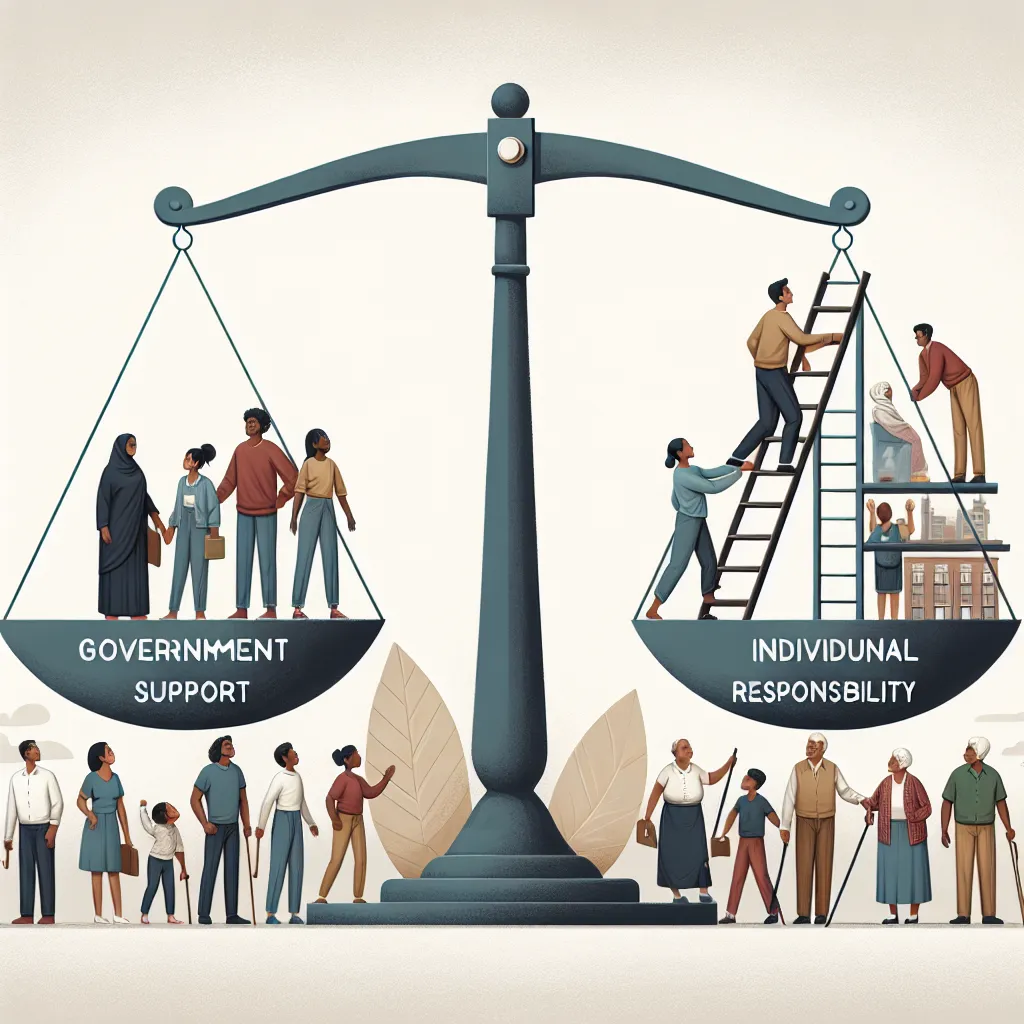Climate change and its effects on global food production is a critical topic that frequently appears in IELTS Writing Task 2. Given its relevance to current global issues, candidates can expect to encounter this theme in future exams. Let’s explore a sample question and provide model essays to help you prepare for this important subject.
Nội dung bài viết
Analyzing the Task
Some people believe that climate change will have a devastating effect on global food production in the coming decades. To what extent do you agree or disagree with this statement?
This question asks for your opinion on the potential impact of climate change on worldwide food production. It’s crucial to:
- Clearly state your position
- Provide well-supported arguments
- Consider potential counterarguments
- Use relevant examples
Let’s examine two sample essays addressing this prompt, one aiming for a Band 8-9 score and another for a Band 6-7 score.
Sample Essay 1 (Band 8-9)
Climate change is undoubtedly one of the most pressing issues of our time, and its potential impact on global food production is a matter of grave concern. I strongly agree with the statement that climate change will have a devastating effect on worldwide food production in the coming decades, due to its far-reaching consequences on agricultural systems, water resources, and biodiversity.
Firstly, climate change is altering weather patterns in ways that significantly affect crop yields. Rising temperatures and shifting precipitation patterns are leading to more frequent droughts, floods, and extreme weather events, which can destroy crops and reduce harvests. For instance, the severe droughts in California from 2012 to 2016 resulted in substantial losses in agricultural production, highlighting the vulnerability of even advanced farming systems to climate-induced weather changes.
Secondly, climate change is causing sea levels to rise, which poses a direct threat to coastal agricultural lands. Saltwater intrusion into freshwater aquifers and increased soil salinity in coastal areas can render vast tracts of fertile land unsuitable for cultivation. Countries like Bangladesh, with its low-lying coastal regions, are already experiencing this problem, forcing farmers to adapt or abandon their lands.
Furthermore, climate change is disrupting ecosystems and biodiversity, which play crucial roles in food production. The decline in pollinator populations, such as bees, due to changing temperatures and habitat loss, can severely impact crop pollination and, consequently, food production. Additionally, the spread of pests and diseases to new regions as a result of warming temperatures poses additional challenges to maintaining crop health and productivity.
While some argue that technological advancements in agriculture can mitigate these impacts, I believe that the rate and scale of climate change may outpace our ability to adapt. Developing resilient crop varieties and implementing sustainable farming practices are essential steps, but they may not be sufficient to fully counteract the devastating effects of rapid climate change on global food systems.
In conclusion, the evidence overwhelmingly suggests that climate change will have severe repercussions on global food production. It is imperative that we take urgent action to mitigate climate change and develop adaptive strategies to ensure food security for future generations. (329 words)
 Climate change impact on agriculture
Climate change impact on agriculture
Sample Essay 2 (Band 6-7)
Climate change is a big problem in the world today, and many people think it will badly affect how we grow food in the future. I agree that climate change will have a big impact on global food production in the coming years.
One main reason I agree is that climate change is changing the weather. When the weather gets hotter or there are more storms, it can hurt the crops that farmers grow. For example, if there isn’t enough rain, plants can’t grow well. This means farmers might not be able to grow as much food as before.
Another problem is that climate change can make some insects and plant diseases worse. When it gets warmer, some bad insects might live longer or move to new places. This can damage more crops and make it harder for farmers to protect their plants.
Also, climate change is making the sea level go up. This is bad for farmers who grow food near the coast because salty water can get into the soil and make it hard to grow crops. Some farmers might have to move their farms or find new ways to grow food.
However, some people think that new farming methods and technology can help solve these problems. While this might be true, I think climate change is happening so fast that it will still be very hard for farmers to keep up.
In conclusion, I believe climate change will have a big negative effect on how we grow food around the world. We need to try to stop climate change and also find ways to help farmers deal with these new problems. (253 words)
Key Writing Tips
Vocabulary
For a higher band score, use a range of advanced vocabulary related to climate change and agriculture. Some examples include:
- Agricultural systems
- Precipitation patterns
- Saltwater intrusion
- Soil salinity
- Ecosystem disruption
- Biodiversity loss
- Pollinator populations
- Resilient crop varieties
- Sustainable farming practices
Grammar
Demonstrate your command of complex grammatical structures:
- Use conditional sentences: “If climate change continues at its current rate, food production could be severely impacted.”
- Employ passive voice when appropriate: “Crops are being affected by changing weather patterns.”
- Utilize relative clauses: “Farmers, who are on the front lines of climate change, are developing adaptive strategies.”
Structure
- Clearly state your position in the introduction
- Use topic sentences to introduce each main point
- Provide specific examples to support your arguments
- Include a counterargument to demonstrate a balanced view
- Summarize your main points in the conclusion
Key Vocabulary to Remember
-
Mitigation (noun) /ˌmɪtɪˈɡeɪʃn/: The action of reducing the severity, seriousness, or painfulness of something.
-
Resilience (noun) /rɪˈzɪliəns/: The capacity to recover quickly from difficulties; toughness.
-
Adaptation (noun) /ˌædæpˈteɪʃn/: The process of changing to suit different conditions.
-
Biodiversity (noun) /ˌbaɪəʊdaɪˈvɜːsəti/: The variety of plant and animal life in the world or in a particular habitat.
-
Precipitation (noun) /prɪˌsɪpɪˈteɪʃn/: Rain, snow, sleet, or hail that falls to the ground.
-
Aquifer (noun) /ˈækwɪfər/: An underground layer of water-bearing permeable rock, rock fractures or unconsolidated materials.
-
Ecosystem (noun) /ˈiːkəʊˌsɪstəm/: A biological community of interacting organisms and their physical environment.
-
Sustainable (adjective) /səˈsteɪnəbl/: Able to be maintained at a certain rate or level.
-
Intrusion (noun) /ɪnˈtruːʒn/: The action of intruding or the state of being intruded upon.
-
Pollinator (noun) /ˈpɒlɪneɪtər/: An animal that transfers pollen from one flowering plant to another, fertilizing the plants.
Conclusion
The impact of climate change on global food production is a critical topic in IELTS Writing Task 2. By understanding the key issues and practicing with sample essays, you can improve your ability to write compelling arguments on this subject. Remember to use a range of vocabulary, demonstrate complex grammatical structures, and provide specific examples to support your points.
To further enhance your skills, try writing your own essay on this topic or related themes such as:
- The role of technology in mitigating climate change’s effects on agriculture
- The importance of international cooperation in addressing global food security
- The potential benefits and drawbacks of genetically modified crops in a changing climate
We encourage you to practice writing an essay on this topic and share it in the comments section below. This active approach to learning will help you refine your writing skills and prepare effectively for the IELTS exam.
For more information on related topics, you may find these articles helpful:


